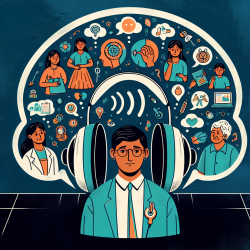In the evolving landscape of special education, understanding the roles of various professionals is critical to providing holistic and effective services to students. A recent study titled Knowledge of the Roles of Speech-Language Pathologists by Students in Other Health Care Programs highlights the importance of this understanding, particularly focusing on Speech-Language Pathologists (SLPs).
The study surveyed 268 students from medicine, nursing, physiotherapy (PT), and occupational therapy (OT) programs at Dalhousie University. The results showed that final-year students in nursing, PT, and OT had significantly more knowledge about the roles of SLPs compared to their first-year counterparts. Interestingly, no such difference was found among medical students.
Key findings from the study include:
- OT and PT students demonstrated more knowledge about the roles of SLPs than students in medicine or nursing.
- Students were more knowledgeable about the role of SLPs in addressing speech difficulties than language difficulties, particularly cognitive or social language issues.
- Interprofessional learning and varying clinical and personal experiences were identified as significant factors influencing the knowledge levels of students.
For practitioners, these findings underscore the importance of continuous learning and interprofessional education. Here are some actionable steps to improve your understanding and collaboration with SLPs:
Engage in Interprofessional Education
Participate in interprofessional education modules that focus on the roles and values of different health professionals. This will not only enhance your understanding but also foster better teamwork and service delivery.
Network with SLPs
Attend conferences, webinars, and workshops where you can meet and interact with SLPs. Networking provides an excellent opportunity to learn from their experiences and insights.
Encourage Collaborative Learning
Organize or participate in interdisciplinary meetings and training sessions. Encourage your team to share their knowledge and experiences with SLPs to build a cohesive and informed team.
Stay Updated with Research
Keep abreast of the latest research and publications related to SLPs and their roles. This will help you stay informed about new developments and best practices in the field.
By taking these steps, you can significantly enhance your understanding of the roles of SLPs and improve your practice. Remember, a well-informed team is better equipped to provide comprehensive and effective services to students.
To read the original research paper, please follow this link: Knowledge of the Roles of Speech-Language Pathologists by Students in Other Health Care Programs.










